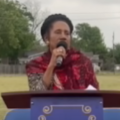In a recent televised discussion, Piers Morgan, a well-known media personality, took on what many see as the absurdity of “woke” ideologies, focusing specifically on the topic of reparations. This debate highlighted not only the divides in our society but also the shaky ground upon which these ideologies stand.
Morgan Takes on Reparations
During the segment, Piers Morgan challenged the idea that individuals today should be financially liable for historical actions they had no part in. He posed a direct question: “How much money do you want from me for something that had nothing to do with me?” This question strikes at the heart of the reparations debate. Why should today’s generations pay for the actions of those long gone?
The response from the activist didn’t address Morgan’s fundamental concern but rather continued to push a broad, vague demand for financial compensation. This kind of dialogue shows how conversations about reparations often miss the mark. They don’t address the logistics or the fairness of implementing such a policy.
The Financial Implications
Let’s talk numbers. The activist mentioned figures in the trillions, quoting a national commission on reparations that had evaluated the economic impact of historical injustices. But here’s the question — where would this enormous sum come from? Taxpayers’ pockets. This approach not only seems impractical but also places an unfair burden on people who have no connection to those past actions.
Cultural and Social Impacts
During the debate, there was also talk about cultural pride and the existence of historical symbols and statues. The activist argued that British pride should not diminish her pride as a Black person. This argument opens a significant can of worms about how a society balances its history with the diverse experiences of its people. While it’s essential to respect all community members, erasing history is not the answer.
Pride vs. Practicality
The discussion about pride brings up another point: How does feeling pride translate into practical solutions for today’s problems? Morgan highlighted this by questioning if meeting the demands of the so-called grievance groups would actually resolve the issues they claim to address. His point was clear: Simply throwing money at the problem won’t change historical facts or heal old wounds.
The Problem with “Woke” Agendas
The term “woke” often comes up in discussions about social justice and race. But in this debate, as Morgan pointed out, the “woke” agenda seems less about solving problems and more about perpetuating a cycle of grievance. This is not constructive. It does not lead to real change but rather fosters a permanent state of dissatisfaction and division.
Final Thoughts
The discussion between Piers Morgan and the activist underscores a critical issue with the current “woke” ideologies — they are not grounded in practicality or reality. As Morgan adeptly pointed out, addressing past wrongs is important, but it must be done in a way that is fair and reasonable to all members of society, not just a select few. This debate serves as a reminder that while history should not be forgotten, it should also not be used as a weapon to divide and conquer. It’s time for sensible solutions, not reparations that don’t address the root problems or help us move forward together.




















Reparations ……..Now!
One way tickets to Africa!
Losing 13% of the population will cut the US crime rate in half easily!
What about all the people who are descendants of all those who fought to free the slaves and died or who just fought. Shouldn’t they be considered? Look at all the Civil War cemeteries. Count the tombstones. Why should their descendants have to pay? Subtract one million dollars for every tomb stone from what is wanted in reparation. Let’s see how much reparation money is left. This is not any more unreasonable than what they are demanding. Don’t know if you will get this.
Helen